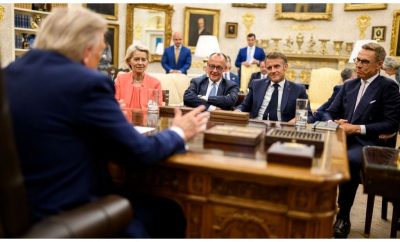
Europe’s Tightrope Diplomacy on China
The EU-China Comprehensive Agreement on Investment was born in a complex political environment but now has renewed potential to warm economic relationships between the two powers. As U.S.-China tensions rise, the EU may have taken a different route into uncharted territory.
The European Union’s Comprehensive Agreement on Investment (CAI) with China—announced on December 30, 2020, at the end of Germany’s six-month rotating presidency of the Council of the European Union—was the result of long discussions among EU officials and member states. After nearly seven years and thirty-five rounds of EU-China talks, the European Commission decided it had achieved as much as it could. Negotiations had gone at a snail’s pace until recently, but commitments finally came from Beijing in the last weeks of December on two major areas: first, international labor standards, and second, sustainable development and climate change. At last, China—with the personal involvement of President Xi Jinping, who last year declared relations with Europe a top foreign policy priority—was ready to sign and make some concessions. And, above all, this round of negotiations was the last chance for German Chancellor Angela Merkel—who has visited China twelve times since taking office in 2005—to strike a deal with the country before she retires after Germany’s general elections in September.
The timing of the CAI announcement—three weeks before the inauguration of President Joe Biden, who had committed to a new approach of bringing together the United States’ democratic allies for engaging with China—raised eyebrows in Washington, especially as national security adviser–designate Jake Sullivan had tweeted on December 21 that the new administration would “welcome early consultations with our European partners on our common concerns about China’s economic practices.” Although it was not able to interact officially with the EU or European governments before taking office, the Biden team clearly seemed keen to engage with them on unfair Chinese practices such as state subsidies, forced technology transfers, and market access discrepancies.
Συνέχεια ανάγνωσης εδώ
Πηγή: carnegieendowment.org




